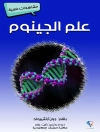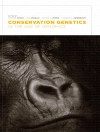Regeneration is a groundbreaking work by Thomas Hunt Morgan that delves into the intricate process of biological regeneration in organisms. Through a blend of informative content and engaging narrative, Morgan explores the underlying mechanisms that drive regeneration, providing readers with a comprehensive look at this fascinating phenomenon. The book is written in a clear and accessible style, making it a valuable resource for both scientists and general readers seeking to broaden their understanding of the natural world. With detailed explanations and insightful interpretations, Regeneration stands as a notable contribution to the field of biology literature. Thomas Hunt Morgan’s expertise as a renowned geneticist shines through in this illuminating work, showcasing his keen intellect and passion for scientific discovery. His background in experimental research and academic pursuits undoubtedly informed the creation of this book, offering readers a unique perspective on the process of regeneration. I highly recommend Regeneration to anyone interested in the intersection of biology and genetics, as it provides a captivating exploration of a fundamental aspect of life.
Sobre o autor
Thomas Hunt Morgan (1866-1945) was an eminent American evolutionary biologist, geneticist, embryologist, and author who made significant contributions to our understanding of genetics and heredity. Born in Lexington, Kentucky, Morgan’s notable scientific career was marked by his pioneering work on the role of chromosomes and genes in heredity. His landmark book ‘Regeneration’ (1901), although not as well-known as his later works, addressed the mechanisms of regrowth in organisms, a topic that mirrored his broad interests in development and evolution. Morgan’s seminal research was conducted at Columbia University where he utilized the fruit fly, Drosophila melanogaster, as a model organism, leading to the discovery of sex-linked inheritance and the concept of genetic linkage. His findings earned him the Nobel Prize in Physiology or Medicine in 1933, celebrating his work on the role of chromosomes in heredity. Morgan’s literary style combined rigorous scientific analysis with clarity and accessibility, enabling readers from diverse backgrounds to engage with complex biological concepts. He also authored ‘The Mechanism of Mendelian Heredity’ (1915) and ‘The Theory of the Gene’ (1926), both of which further solidified his status as a foundational figure in modern genetics. In addition to his research and writing, Morgan contributed to the scientific community through his teaching and influential presence at the California Institute of Technology.












